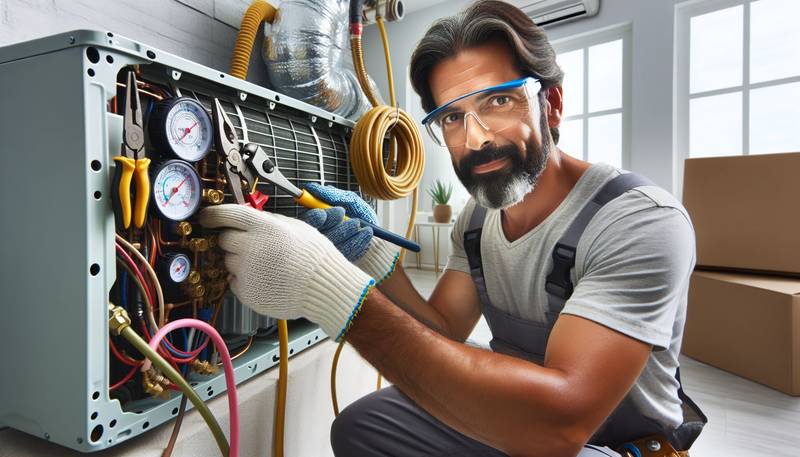Cool Careers: Becoming an Air Conditioner Installer in Today's Market
With the increasing need for climate control solutions in residential and commercial buildings, becoming an air conditioner installer can be a lucrative and rewarding career choice. This article will explore the steps to becoming an air conditioner installer in today's market and why this profession is in high demand.
The Importance of Air Conditioning Installation
Air conditioning systems play a crucial role in maintaining comfortable indoor temperatures in homes, offices, hospitals, and other buildings. In hot and humid climates, air conditioners provide relief from the sweltering heat, improve air quality, and create a more comfortable living and working environment. As a result, there is a constant demand for skilled professionals who can install, repair, and maintain air conditioning systems to ensure their optimal performance.
Training and Education Requirements
To become an air conditioner installer, individuals must undergo formal training and obtain the necessary certifications. Most employers prefer candidates who have completed a vocational program in heating, ventilation, air conditioning, and refrigeration (HVACR) from a trade school or community college. These programs typically cover topics such as electrical systems, refrigeration principles, HVAC system design, and installation techniques.
In addition to formal education, aspiring air conditioner installers may also consider participating in apprenticeship programs offered by trade associations or HVAC companies. These programs provide hands-on training under the supervision of experienced professionals, giving apprentices valuable practical experience in installing and servicing air conditioning systems.
Licensing and Certification
In most states, air conditioner installers are required to obtain a license or certification to practice legally. The specific requirements vary by state but typically involve passing an exam to demonstrate proficiency in HVACR systems and regulations. Additionally, some manufacturers of air conditioning equipment may require installers to undergo specialized training and certification to work on their products.
Obtaining a license or certification not only ensures that air conditioner installers have the necessary skills and knowledge to perform their job effectively but also enhances their credibility and marketability in the industry. Employers and customers are more likely to trust certified professionals to install and service their air conditioning systems, increasing job opportunities and earning potential.
Job Outlook and Opportunities
The demand for air conditioner installers is expected to remain strong in the coming years as the construction of residential and commercial buildings continues to grow. Additionally, the need to replace and upgrade existing HVAC systems to improve energy efficiency and comply with environmental regulations will create new opportunities for skilled installers. As a result, individuals pursuing a career in air conditioning installation can look forward to a stable job market with steady demand for their services.
Furthermore, air conditioner installers who specialize in specific types of systems, such as ductless mini-split units or high-efficiency HVAC systems, may have a competitive edge in the market. By staying current on the latest industry trends and technologies, installers can differentiate themselves from the competition and attract more clients seeking advanced climate control solutions.
Conclusion
Becoming an air conditioner installer in today's market offers a wealth of opportunities for individuals seeking a stable and rewarding career in the HVACR industry. With the right training, education, and certification, aspiring installers can build a successful career installing and servicing air conditioning systems in residential and commercial settings. By staying current on industry trends and technologies, air conditioner installers can position themselves for long-term success in a field that is essential for maintaining comfort and productivity in indoor spaces.











